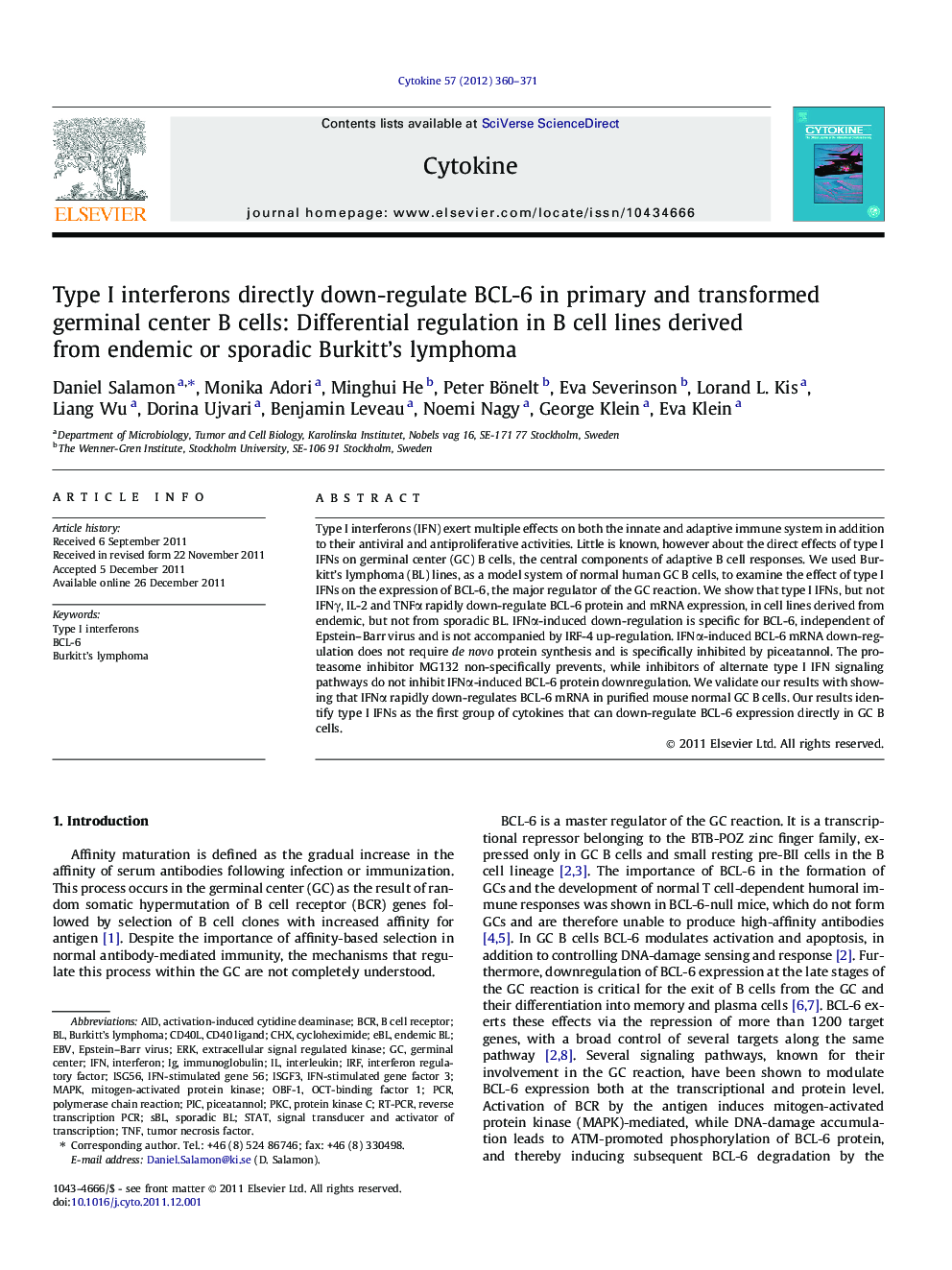| Article ID | Journal | Published Year | Pages | File Type |
|---|---|---|---|---|
| 2794396 | Cytokine | 2012 | 12 Pages |
Type I interferons (IFN) exert multiple effects on both the innate and adaptive immune system in addition to their antiviral and antiproliferative activities. Little is known, however about the direct effects of type I IFNs on germinal center (GC) B cells, the central components of adaptive B cell responses. We used Burkitt’s lymphoma (BL) lines, as a model system of normal human GC B cells, to examine the effect of type I IFNs on the expression of BCL-6, the major regulator of the GC reaction. We show that type I IFNs, but not IFNγ, IL-2 and TNFα rapidly down-regulate BCL-6 protein and mRNA expression, in cell lines derived from endemic, but not from sporadic BL. IFNα-induced down-regulation is specific for BCL-6, independent of Epstein–Barr virus and is not accompanied by IRF-4 up-regulation. IFNα-induced BCL-6 mRNA down-regulation does not require de novo protein synthesis and is specifically inhibited by piceatannol. The proteasome inhibitor MG132 non-specifically prevents, while inhibitors of alternate type I IFN signaling pathways do not inhibit IFNα-induced BCL-6 protein downregulation. We validate our results with showing that IFNα rapidly down-regulates BCL-6 mRNA in purified mouse normal GC B cells. Our results identify type I IFNs as the first group of cytokines that can down-regulate BCL-6 expression directly in GC B cells.
► BCL-6 is the major regulator of germinal center reaction. ► Type I interferons down-regulate BCL-6 in eBL-, but not in sBL-derived lines. ► BCL-6 down-regulation is independent of EBV and de novo protein synthesis. ► It is specifically inhibited by piceatannol. ► Interferon alpha down-regulates BCL-6 in normal GC B cells.
